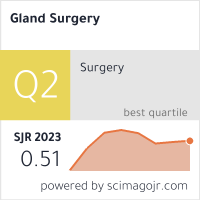THE EFFECTIVENESS OF NURSE-LED PROGRAMS FOR ENHANCING PATIENT ENGAGEMENT AND SELF-MANAGEMENT IN CHRONIC DISEASE CARE AT SAUDI ARABIA: SCOPING REVIEW
Keywords:
nurse-led interventions, patient participation, self-management, chronic conditionsAbstract
Introduction: Chronic diseases are a huge global health burden that require effective management techniques. Nurse-led programs have emerged as a viable way to improve patient involvement and self-management in chronic disease treatment.
Aim: This scoping review sought to map and synthesize available data on the efficacy of nurse-led interventions in improving these outcomes in Saudi Arabia.
Methods: To find relevant papers published between 2022 and 2024, a comprehensive search approach was used across electronic databases (PubMed, Scopus, CINAHL, Web of Science, and Saudi Digital Library). The inclusion criteria included studies that focused on nurse-led interventions for patients with chronic conditions in Saudi Arabia, with results linked to patient engagement, self-management, or clinical improvements. Exclusion criteria included studies conducted outside of the required timeframe, population, or without nurse-led treatments. A standardized form was used for data extraction and synthesis, as well as theme analysis.
Results: Five studies of which met the inclusion criteria. The data repeatedly show the effectiveness of nurse-led programs for a variety of chronic illnesses, including cardiovascular disease and diabetes. Nurse-led interventions were found to reduce cardiovascular-related hospital readmissions and emergency department visits, as well as improve blood pressure control and lipid profiles. In diabetes care, nurse-led patient education initiatives led to significantly increased medication adherence and better glycemic control. Several studies highlight nurses' vital role in providing individualized treatment, patient education, and emotional support, which leads to increased patient satisfaction, fewer hospital admissions, and a higher quality of life.
Conclusion: Nurse-led initiatives have significant potential to improve patient involvement, self-management, and health outcomes in chronic illness treatment in Saudi Arabia. These interventions present a practical and successful strategy for enhancing patient care. This analysis argues that nurse-led initiatives require targeted policy reforms, budget allocation, and health-care system improvements to support their implementation and extension.





